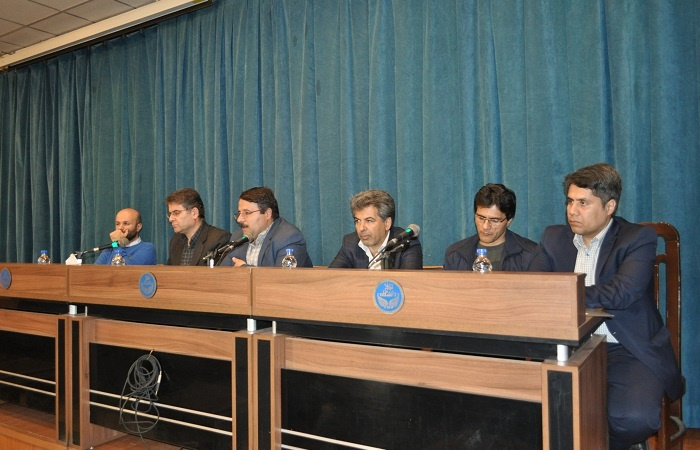An Academic Meeting on the Attitudes of Caucasian Elites towards the Russian Tsar Dominancy

This meeting was held on 26 November, 2018 at the venue of Kamal Hall at Faculty of Literature and Humanities, UT.
Enumerating the significance of the issue, Dr. Goudarz Rashtiani, faculty member of the Department of History, UT said, “ During the historical periods, the Caucasians have always had a tendency towards Iran , Othman and Russia. There is general view based on this issue which shows the tendency of Caucasians towards joining to Russia, however, the documents which have been found in recent years, cast doubts on this claim”.
He further added, “Some of factors, such as the religious commonalities of Georgians, Armenians towards Russia, the pressure of Iranian central government, lack of supplying security by the Central Government and economic pressure reinforce the first viewpoint. From religious viewpoint, there are two perspectives: The Etchmiadzin Cathedral tended to join to Russia whereas Qarabaq Church was opposing to Tsar Russia whose main reason could be religious competition”
Referring to the viewpoints of the elites, Dr. Rashtiani said, “Among the Caucasian elites, there has been two pros and cons views and after joining to Russia, due to the lack of presenting services to Armenians including the construction of church and vast efforts to join with Orthodox branch, certain riots took place. At the same time, in that age, Isfahan, the capital of Safavid had 11 churches and it is natural that they were eager to be under the flag of Iran”
Furthermore, Dr. Rashtiani referred to the archive documents which exist in Georgia, Armenia and Russia and added, “All these documents indicate the efforts to remain within the framework of Iranian borders and opposing to joining with Russia”.
At the end of his talks, he referred to the taking refuge of the last son of Georgian king, namely Alexander Mirza to the court of Iran. He further added, “During the 13-year of Iran and Russia, he fought besides the soldiers of Iranian army against Russia. This is an important sample of tendency of Caucasian elites to join with Iran”.
In this meeting, Dr. Morshedlou, a faculty member of Department of History of Tarbiat Modarees University as the first critic said, “Caucasia has a colorful presence in the history of Iran. It seems that in the military conflict between Iran and Russia, Caucasia was separated from Iran and this subject made a strategic change. The Safavid state at the time was not the cause for the social structure change in Caucasia but this case is different in the case of Russia. Russian government made many changes in social and political structure of Caucasia which should be viewed with regard to the modern power of Russia which we know it as dominancy.
He further added, “At the age of transfer of Caucasia towards Russia, we observe the change of elites from the old to new. The old elites were sent to margin and the new elites which were indebted to Russia and had grown up under that dominancy were seeing themselves within the framework of Russian Tsar.
Dr. Zarini, researcher of the history of Caucasia, while mentioning an introduction from Tolstoy to Haji Morad novel said, “It is interpreted that Russia could not overcome the people of Caucasia and Iranian culture is hidden in Caucasia society and 230 Caucasian poets who have versified in Persian confirm this important issue”.
Referring to the reason of tendency of Caucasians to Russia, he further added, “one important point should be taken into consideration and that is: Why the Georgian and Armenian went towards Russians? The main reason was the lack of sufficient security at Zand age and Shah Abbas and in general, the Central Government and for this reason they asked the Great Peter to join with Russian Tsar”.
At the end of this meeting, the critics and speakers exchanged ideas on the views being put forth in the meeting.

Your Comment :